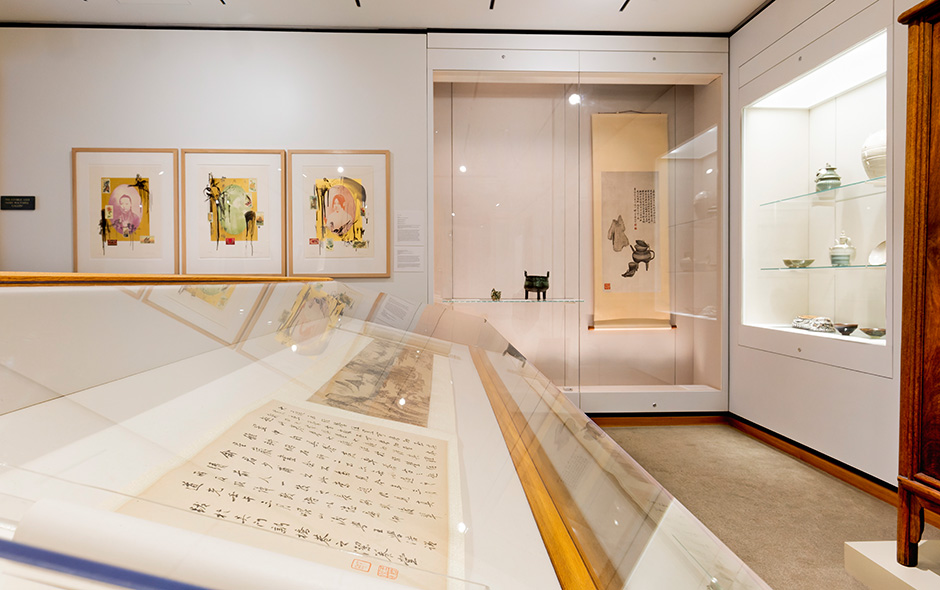Obaku Mokuan
(Japanese, 1611–1684)
Tan teikyo gaishi [Carrying the faith alone is unthinkable]


Object Details
Artist
Obaku Mokuan
Date
17th century
Medium
Hanging scroll: ink on paper
Dimensions
50 3/4 × 19 3/8 inches (128.9 × 49.2 cm)
Credit Line
The George and Mary Rockwell Collection
Object
Number
2000.032.001
Known as one of the “Three Brushes of Obaku,” Mokuan, whose Chinese name is Mu-an, came from Fujian (…)
Known as one of the “Three Brushes of Obaku,” Mokuan, whose Chinese name is Mu-an, came from Fujian province, where he began his life as a Zen monk at the age of eighteen. Together with Ingen Ryuki (Yinyuan Longqi), another Chinese Zen master who traveled to Japan, they founded Manpuku-ji, near Kyoto, the main temple of the Obaku sect. Obaku is the most Chinese of the Japanese Zen Buddhist sects. After Ingen retired as head abbot, Mokuan became abbot of Manpuku-ji and thus the second patriarch of Obaku. Mokuan was especially admired for his bold, large-character calligraphy. The left scroll refers to the mind-to-mind transmission of the Zen spirit, which is beyond the range of words. The center scroll could also be interpreted, “After receiving enlightenment one sees clearly.”












